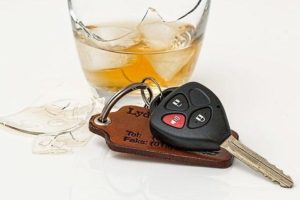In the old days, motorcycle reliability was a major issue and a motorcycle inspection checklist was essential. These days bikes are more reliable, but using a checklist before you ride will ensure that no unexpected problems occur during your ride. It’s good practice for safety, and it could mean the difference between having a break down (and potentially being in a crash) and having a great ride.
Years ago, oil leaks and burning oil were more standard than not, drum brakes needed cleaning, spokes could break and cause a hazard. Although bikes now are safer and far more stable, with repetitive use (and yes, occasionally abuse), problems can occur. The Motorcycle Safety Foundation has created a simple checklist that is easy to remember and quick to run through periodically or preferably before each ride.
For a free legal consultation,
call 1-800-668-6729
Some even suggest going through this list after each ride, so that you don’t get ready to go on a ride only to discover an issue with your bike. Certainly, it’s more convenient to discover and issue after your ride, when you have time to make a repair before you plan to hit the road again. My issue with this is that occasionally problems develop when your bike is sitting unridden, especially if it’s outside and exposed to the elements or sitting unridden for a period of time.
The Motorcycle Safety Foundation created the acronym T-CLOCK to help you remember and organize a motorcycle inspection checklist.
Motorcycle Inspection Checklist – T-CLOCK
The letters represent the following:
T- Tires and wheels
C- Controls
L- Lights and Electrics
O- Oil
C- Chassis
K- Kickstand
Tires and wheels – check the pressure of your tires and the condition of the tread. Make sure there are no cuts, punctures, or embedded foreign objects in the tires. Check the wheels and make sure the spokes are all secure and that the rims are true. Make sure the wheels spin freely and that the bearing seals are intact. The brakes should have decent pad depth, no leaks, and should feel firm. This is not an area to skimp on- so if your brakes seem iffy, avoid the ride.
Click to contact our personal injury lawyers today
Controls – Make sure the pivots are lubed and that the position is correct. The cables should be secure and with no kinks or frayed areas. They should be properly adjusted and the ends and shafts lubed. Check hoses for leaks and damage, and make sure the throttle has no extra play and snaps closed when released.
Complete a Free Case Evaluation form now
Lights – Check headlights, brake, and taillights to make sure that the filaments all work and that the levers work and that there are no cracks or damage. The lenses should be clean, without condensation, and the lights need to be aimed correctly. While you are at it, check the battery. The terminals should be clean and the battery should be held down. Make sure there is no corrosion.
Oil and Fluids – Check the levels and color of your fluids, coolant, and fuel. Ensure there are no leaks. Again, this is easier after your bike has been sitting in one place for a while.
Chassis – Make sure there is no areas of peeling or cracking paint as this can indicate issues with the frame. With the wheels lifted, be sure that the fork legs don’t have play in both the front and rear. Check the chain or belt for tension and indications of wear. Check for loose fasteners or pins.
Kickstand – It should retract firm, have no bending. The centerstand should retract without extra play and be free of damage.
Although the first couple of times you move through this motorcycle inspection checklist it may seem excessive, once you have done it a few times, it flows quickly. It helps you become more familiar with your bike and means you are more safe and secure on the road.
At Kass & Moses, we believe bikers should have every opportunity to remain safe on the road. We encourage bikers to follow the motorcycle inspection checklist, ride safely, and avoid crashes. As motorcycle crash lawyers, we see all too often the injuries and even deaths that can occur from motorcycle crashes on the roads. Call 1-800-MOTORCYCLE to talk to someone on our team today.
Call or text 1-800-668-6729 or complete a Free Case Evaluation form

